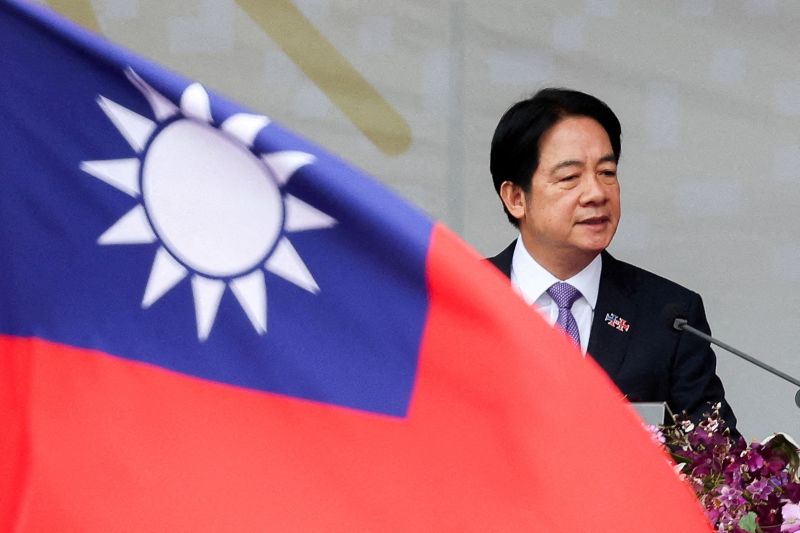The upcoming visit of Taiwan’s President to Hawaii and Guam has caused a ripple of concern in Beijing, triggering a fresh wave of tension in the complex relationship between China and Taiwan. President Tsai Ing-wen’s planned trip to these American territories is seen as a bold move that challenges China’s longstanding policy of considering Taiwan a wayward province. The visit is particularly significant as it marks the first time a sitting Taiwan President will step foot in the U.S. territories, a development that Beijing views as a provocative gesture aimed at undermining its authority over Taiwan.
Amidst escalating tensions in the region, President Tsai’s visit serves as a potent symbol of Taiwan’s determination to assert its independence on the international stage. By visiting Hawaii and Guam, she is sending a clear message that Taiwan is not willing to be relegated to the sidelines of global affairs. Furthermore, the trip underscores Taiwan’s reliance on its allies and partners to counteract Chinese aggression and safeguard its sovereignty.
The timing of President Tsai’s visit is not accidental. It comes at a critical juncture when China is flexing its muscles and increasing its pressure on Taiwan, both diplomatically and militarily. Beijing has consistently sought to isolate Taiwan on the international stage, pressuring countries to sever diplomatic ties with Taipei and ostracizing it from global forums. In this context, President Tsai’s visit to Hawaii and Guam represents a strategic gambit to strengthen Taiwan’s ties with the U.S. and its allies, thereby enhancing its resilience against Chinese coercion.
The reaction from Beijing to President Tsai’s impending visit has been swift and severe. Chinese officials have expressed their displeasure and warned the U.S. against playing with fire by facilitating the visit. Beijing views Taiwan as a red line that must not be crossed and is prepared to take measures to safeguard its territorial integrity. The visit to Hawaii and Guam is seen as a provocative act that challenges the so-called One China principle, which is the cornerstone of China’s policy towards Taiwan.
In response to Beijing’s ire, the U.S. has reaffirmed its commitment to its partnership with Taiwan and defended President Tsai’s right to visit Hawaii and Guam. Washington has made it clear that it will not be dictated to by China on matters concerning Taiwan and will continue to support its long-standing ally in the face of Chinese aggression. The U.S. sees Taiwan as a strategic partner in the Indo-Pacific region and is intent on bolstering its ties with Taipei to counterbalance China’s growing influence in the region.
As President Tsai prepares for her historic visit to Hawaii and Guam, the world watches with bated breath to see how Beijing will respond to this challenge to its authority. The trip represents a bold assertion of Taiwan’s autonomy and a defiance of China’s dominance, setting the stage for a potential showdown between these two formidable adversaries. The visit underscores Taiwan’s determination to assert its independence and deepen its relationships with its allies, signaling a new chapter in the complex and volatile dynamics of the Taiwan-China-U.S. triangle.
